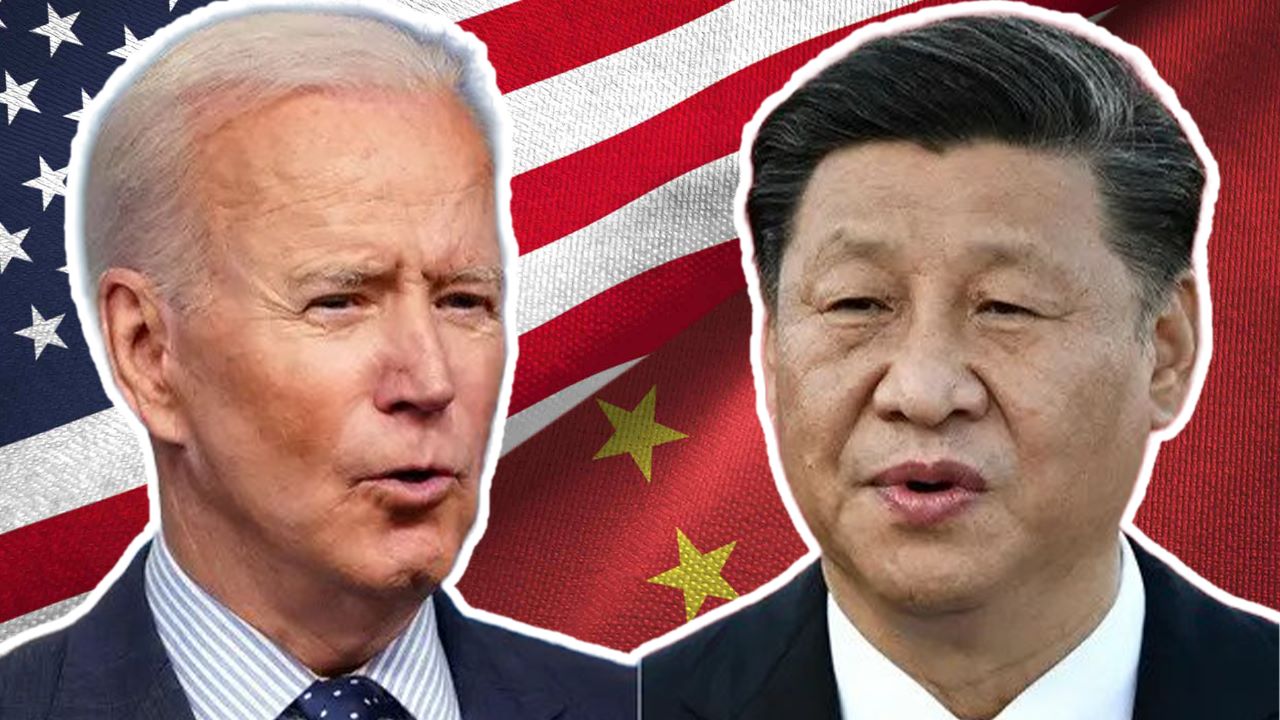By Vaishali Basu Sharma
President Joe Biden has said that the US is not looking at conflict with China but is prepared to win the competition with China in the 21st century.
“We want competition with China, but not conflict. And we’re in a stronger position to win the competition for the 21st Century against China or anyone else for that matter,” he said in his State of the Union address.
“For years, all I’ve heard from my Republican friends and so many others is China’s on the rise and America is falling behind. They’ve got it backward. America is rising. We have the best economy in the world. Since I’ve come to the office, our GDP has been up. And our trade deficit with China is down to the lowest point in over a decade. We’re standing up against China’s unfair economic practices. And standing up for peace and stability across the Taiwan Strait. I’ve revitalized our partnerships and alliances in the Pacific. I’ve made sure that the most advanced American technologies can’t be used in China’s weapons,” Biden said.
China Looks To Boost Failing Economy
This week, over 3000 Chinese politicians, academics, businesspeople, and other representatives of society began the annual parliamentary meetings—closed-door proceedings known collectively as the “two sessions”—in the Great Hall of the People in Beijing.
At the main event of these proceedings, the ‘National People’s Congress,’ Chinese Premier Li Qiang, on March 5, outlined the government’s major economic objectives for 2024. The National People’s Congress is where Beijing’s leaders lay out the economic and social development goals for the year.
Despite its many problems—slow recovery from the COVID-19 pandemic, weak spending, high unemployment, and a property crisis—China is hoping to resuscitate consumer confidence and spending.
In his annual report, Premier Li Qiang, President Xi Jinping’s number two, announced a budget deficit target and stressed the need to maintain economic growth despite challenges. He said that “the main development targets this year are GDP growth of around 5%, with the creation of more than 12 million new urban jobs to stem the unemployment rate of around 5.5%, which was pointed out in an urban survey.
These proposed targets take into account domestic and international situations and other factors. Achieving these targets this year is not easy. It requires focused policies, doubled effort, and concerted determination from all sides.
Fiscal support is necessary to supplement the easing of the monetary policy. A special local government bond worth 100 billion yuan is an ambitious target to fill. Another ambitious target is a 2.5% reduction in per capita energy consumption.
The government aims for the same deficit ratio target as last year, 3% of the deficit to GDP ratio. This stimulus package is ambitious because maintaining 5% is becoming increasingly difficult for China. More importantly, ten elements of the government work report have been identified as priorities.
Priority one is a modernized supply chain followed by higher-quality development rather than just an emphasis on GDP growth. Priority three is to encourage domestic consumption. Most of the objectives are almost the same as last year, which underlines China’s struggles. These are especially important since many of those objectives weren’t fulfilled in 2023.
For the Chinese economy, 2023 has seen a mismatch of expectations. Consumer sentiment in China has gone down over the last several months, and encouraging that consumption has been a long-running aim of officials in Beijing.
The lack of consumer confidence also arises from the fact that while markets are looking for short-term support, policymakers are continually looking for long-term gains rather than any short-term immediate relief.

Amidst the very real risks of deflation and disinflation in China domestically, with price cutting everywhere, policymakers have set an inflation target of 3%. This may lead to a moderate increase in CPI inflation.
Setting and maintaining that target is key for China. In addition, the Chinese government has announced a succession of supportive measures, particularly in the stock markets. The various ministries are likely to announce and implement more policies.
Premier Li’s address touched on plans to tackle high local government debt, support the ailing property sector, and improve maternity policies to boost the lagging birth rate.
The real estate sector is critical, and it is one of the main drags on the Chinese economy. It represents as much as 20% of China’s GDP, according to the International Monetary Fund.
The sector has been in a slump since 2020 when the government introduced new rules and regulations to reign in unhealthy speculation and limit lending to real estate companies.
Real estate groups like Evergrande and Country Garden, for example, are struggling to repay their debts. However, Premier Li’s speech, for the first time since 2019, did not include the maxim: “Houses are for living in and not for speculation.”
Beijing is also facing a challenging environment internationally, especially in its relations with Washington. As the US is set to elect its next President, speculation abounds over which candidate, Joe Biden or Donald Trump, is the Chinese government more comfortable with.
While Trump’s trade war escalation during his term as President had been a problem for Beijing, the Biden administration has been successful in building partnerships to counter China. Either way, the direction of Sino-U.S. relations may not alter much post-election.
Escalating geopolitical tensions over disputes in the South China Sea and Taiwan are added to that. With Xi Jinping setting a 2027 deadline to make the country’s military a “world-class force,” tensions have exacerbated.
Beijing, however, has a budget deficit of 3% of the gross domestic product that prevents it from increasing defense spending. China has announced that spending will increase, including a 7.2% increase in the country’s defense spending budget for 2024. This will bring military spending to over $230 bn, already the world’s second-highest behind the United States.
Announced at the National People’s Congress, the latest increase in the military budget marks the biggest jump in five years. China’s military budget of $232 bn has more than doubled over the past decade under Xi Jinping. Beijing’s defense budget is closely watched by its critical neighbors and the US.
It may be noted that fiscal stimulus measures introduced in 2023 failed to buoy the struggling Chinese property sector while business confidence faded.
Delegates will discuss government policy before voting later this week, a process that is sure to meet with no objections under the Chinese Communist system. Despite the many challenges the country is facing, there are no signs that Xi’s position is under threat.
-
Vaishali Basu Sharma is a strategic and economic affairs analyst. She has worked as a consultant with the National Security Council Secretariat for nearly a decade.
-
She tweets at @basu_vaishali.




